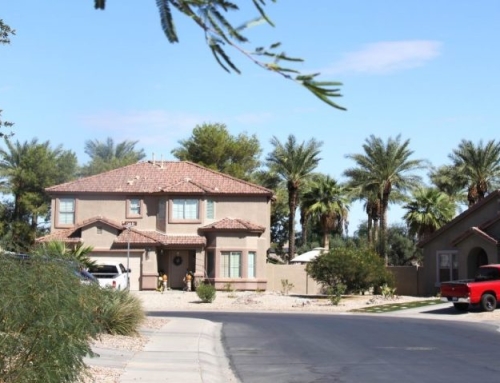Due Diligence – Your Best Friend as a Home Buyer
You’ve found the house you want to buy, put in an offer and earnest money and now are awaiting all the paperwork and approvals. That may include loan approval and inspections in the all-important due diligence period.
That’s the time set aside between the offer and the close when everything is checked out so both sides of the transaction can confirm that everything is as it was presented. The sellers get confirmation that the buyers can get the loan (if necessary) and complete the deal. The buyers have a short window to check out the property, the area, the HOA and more. Due diligence is generally 10 to two weeks, but that’s negotiable – and if you discover something that requires more time to research, you can ask for that (Hint: asking earlier is better).
In many ways this is the most important aspect of home buying as it’s generally the last relatively easy time to pull out of the deal. It’s also just about the last chance to make sure everything is as advertised. You don’t want to find a roof problem or mold after the sale closes and you’re moving the kids in.
So, do your homework, all of it, and do it well. If not, you might face huge financial consequences, or wind up living in a house or neighborhood that you don’t like for years.
What to Inspect and Discover
Home buyer due diligence means digging deep into every aspect of a property before signing on the dotted line. Even if the house is fine, you still have to consider floods, zoning, crime rates, schools, the HOA, nearby industry and other noise or congestion-spawning features that might be around your new castle.
You will want to engage a professional inspector to go through the home and look at its structural integrity, previous and needed repairs, operational systems, plumbing, leaks, and more. If a loan is involved, the lender almost always demands a professional inspection, which will run several hundred dollars (and you should get even if paying cash). I recommend you use an inspector that will re-inspect after any repairs have been made to make sure they were done right – and that nothing new has popped up.
Insist on a Re-inspection Before Closing on Your Home
Your inspection report should be nearly a book detailing what is in the house, what appears to be working well, and what might need to be addressed.
Title Search and Insurance
Your lender will require a title search and insurance, but it’s also something you should do even if paying cash. They will find any legal issues regarding the property, including ownerships, liens, or other disputes that could be legal headaches later.
The sellers’ property disclosure statement
In most jurisdictions, sellers are required to submit an itemized list detailing any problems or issues with the property. In Arizona, it’s called the Sellers Property Disclosure Statement, commonly called the “Spuds.” Be aware that this is what the seller KNOWS about the property. It’s not a guarantee that there are no issues; just that the owner is unaware of them. Problems with things like the roof or the HVAC don’t show up until there is a (potentially expensive) failure, so don’t count (only) on what the seller knows, or will tell you, But if the seller hides something he should have listed, it could be a cause for a lawsuit later on, which no one wants.
Arizona Sellers Property Disclosure Statement – what’s in there:
So have your agent make sure the form is filled out and given to you in the proper time, so you’ll have plenty of opportunities to check everything out. If, for example, the report notes a leak in the living room or water build-up in the garage, you might want to hire a specialist to check for roof problems or mold.
What disclosure statements cover
The seller is supposed to disclose ANY problem with the property that might materially affect the decision to buy. He can’t just say, “Oh, that leak was not big deal; we cleaned it right up.” Nope. They have to tell you, regardless.
So, any leaks, fires, damage, infestation, upcoming assessments the owner would have to pay, nearby environmental site nearby or other issues, like settling soils. If there is an HOA, the seller will have to provide all that information, including the most recent information and rules.
The seller must say if it has sewer nor septic and what utilities are available and from whom.
All legal owners must be disclosed,
Nearby landfill or other odor issues. In Las Vegas, when I was an real estate agent there, a pig farm in the far northeast part of the community emitted a vile stench, but it depended on which way the wind was blowing if you could smell it or not. When the pig farm moved, everyone nearby instantly had a more valuable property.
Is it hooked up to a municipal sewer or does it have a septic system?
If lead-based paint was used in the house.
Any easements, like a neighbor with access privileges to a land-locked property or a utility easement limiting what you could put there or requiring the owner to allow access for maintenance and repair.
The most encompassing rule is that ANYTHING that could affect the buying decision, the price, or affect the peaceful use of the property should be disclosed.
Insurance issues for homebuyers
Ask for the CLUE report. Your agent should also as for the report that lists insurance payments and reports. Whatever happened may well have been fixed completely, but it’s good to know.
What the seller does not have to tell you
Some information the Realtor can’t tell you, and some things they don’t have to. Realtors are wary of making personal judgments that might not match the buyers’ assessments of the same information They are more likely to be “the source of the source,” or tell buyers how they can find that information themselves and make their own judgment about how relevant it might be.
They are not required to disclose that:
- Someone with a disease, such as AIDS, lived there.
- Someone died in the house.
- That someone convicted of a sexual offense lived there.
- Ethnicity, religion, etc. of previous residents – or neighborhood.
Other neighborhood issues to check out
Crime. Most cities have a report that shows how much and what kind of crime has occurred, and where.
Schools. Look for state and private ratings of schools.
Commutes. You’ll have to map this out yourself how long it’s going to take to get to work (or wherever). If you’re going to be driving in rush hour, you might want to make the trip at that time to see if you can handle it.
Unruly neighbors. There is no reference here, but it might be worthwhile to knock on a few doors and ask the folks how the neighbors act.
Industrial or infrastructure plans. These generally are available in the city’s planning and zoning department, but it might take some digging . A call to the local newspaper (if there still is one) reporter who covers city hall might help.
What they don’t have to tell you that you should find out yourself, and usually the information is available, sometimes with a little digging required.
See this link for info on how to check out ratings on crimes, schools and more:
How to Find the Right Neighborhood That Works for Your Lifestyle
What’s It Like Living There?
Drive around the area, including the residential streets, to get a feel for the place, including how near homeowners are. Look for big construction sites or signs indicating that one is coming. I’ve found it’s worthwhile to go to the neighborhood grocery store, which is a good cross-section of people who live in the area. If there is time, chat up the employees or folks in the store. If the area has a common name, do searches for that online.
You might also sign up for a local neighborhood site, like NextDoor.com, and chat up potential neighbors there about the area.
How you can use due diligence to get a better deal
With the professional inspection and your own discovery, you undoubtedly will come up with a few items that need attention or create risk of costing money to address. Use that to either get them addressed or to lower the price. Big issues, such as structural ones, should be addressed before closing, or move on to another property.
You can’t expect that the seller will credit you for normal wear and tear issues that you should have noticed before putting in your offer. Some mid-range issues, or a passel of smalls things, offer the opportunity for the buyer to propose a price reduction that will pay for the buyer handling all of them.
How you can use due diligence to back out of the purchase
During due diligence, almost anything you don’t like can be used to back out of the purchase, as minute as the HOA won’t let work vans park on the street. Much of the time you don’t even have to state the reason. (Make sure when you’re signing the offer that due diligence info is included.)
After the due diligence period has passed, however, that feature (at least the easy use of it) goes away, and backing out can put your earnest deposit at risk. So, make sure you check everything out that’s important to you and DURING DUE DILIGENCE.
By Hal DeKeyser
(Hal DeKeyser is a lifelong journalist and has been a licensed real estate agent for 20 years)>
(Some AI was used in researching but not writing this article.)
The post Due Diligence – Your Best Friend as a Home Buyer first appeared on Arizona Realty Network.
Related Posts

Contact Form













